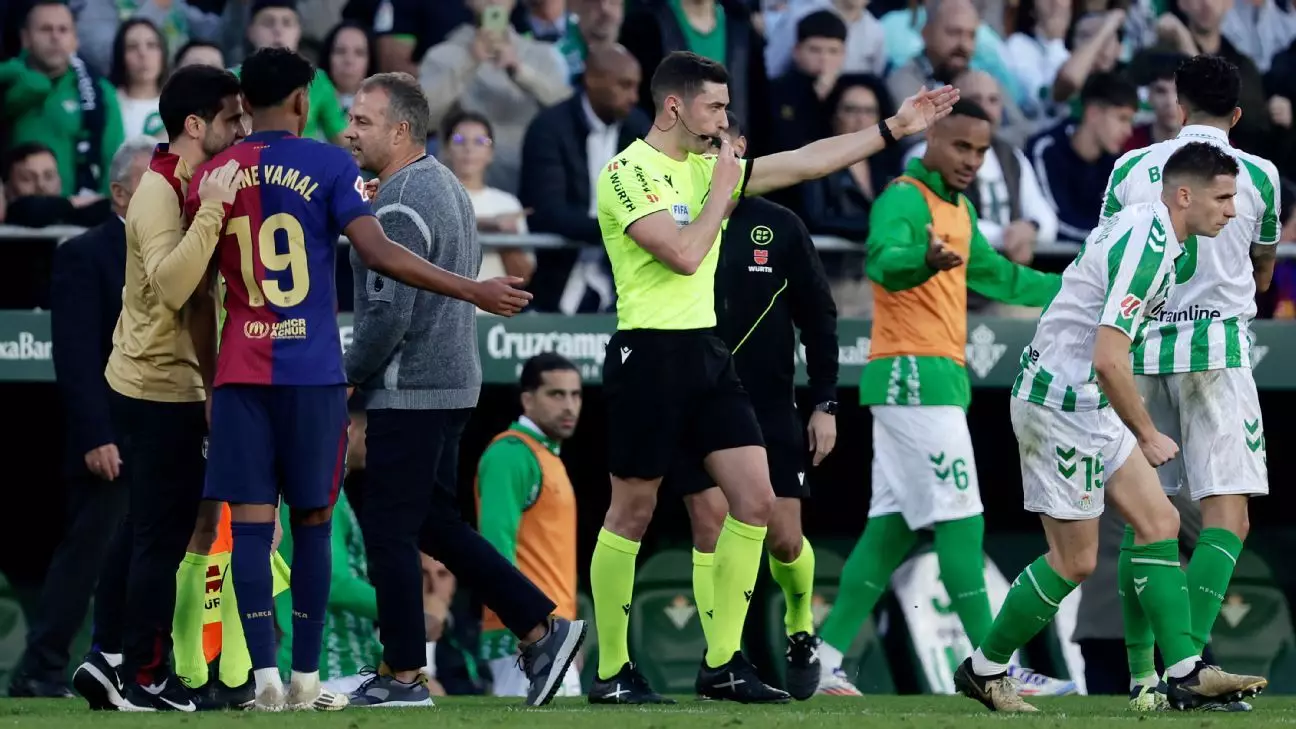On Saturday, FC Barcelona faced a disappointing challenge at the Benito Villamarín Stadium as they were held to a 2-2 draw against Real Betis. In a game where they twice found the lead through goals from Robert Lewandowski and Ferran Torres, Barcelona seemed to have the upper hand. However, defensive lapses and tactical misjudgments allowed Betis to equalize with a penalty from Giovani Lo Celso and a last-minute strike from Assane Diao. This draw marked a troubling trend for the Catalan club, who have now dropped points in four of their last five LaLiga fixtures, raising questions about their title aspirations.
Despite their position at the top of the league table, Barcelona’s grip on first place has weakened significantly. They have now recorded two losses, two draws, and only a single victory in their past five games. The once-comfortable gap between them and their Madrid rivals has shrunk to a mere two points, with Real Madrid even holding a game in hand after their own match against Girona on the same day. Given the heightened pressure to defend their title, this recent performance has become a focal point of criticism.
Head coach Hansi Flick’s strategy during the match has drawn scrutiny, particularly regarding his substitutions in the second half. The German manager made critical changes, replacing key players like Lewandowski and Raphinha, along with midfielders Dani Olmo and Pedri. Although Flick later justified these substitutions by citing the upcoming UEFA Champions League clash with Borussia Dortmund, many observers were left questioning the wisdom of withdrawing his most influential attacking forces during a tense encounter that was hanging in the balance.
Flick acknowledged the team’s underwhelming performance, stating, “It was not a good match.” His admission highlights the struggles faced by a young Barcelona side, calling for improvements and consistency in their play. While he maintains that the squad possesses the quality to win, it remains imperative for the team to demonstrate this potential on the pitch and not merely in training sessions.
Adding to the drama of the match was a controversial decision that resulted in a penalty for Betis. A challenge by Frenkie de Jong on Vitor Roque led to a lengthy VAR review before a penalty was awarded, a situation that understandably frustrated Flick. In an impassioned reaction, he stepped out of his technical area, which ultimately resulted in a red card. Following the match, Flick asserted, “I said nothing to anyone,” while expressing his disappointment over the ejection. His frustrations seem rooted in the perceived ambiguity of the penalty call, and the length of time taken to arrive at it.
This incident underscores the emotional intensity that permeates high-stakes matches. Coaches often walk a fine line between tactical nuance and emotional response, and in this case, Flick’s reaction might have added additional pressure on his already struggling squad. As much as the referee’s decisions can impact the course of a game, one must also acknowledge the overall performance from the team that contributed to the challenging result.
Barcelona’s inability to capitalize on early leads and maintain composure has serious implications for their title ambitions. As they prepare for upcoming fixtures, including an essential Champions League match, the urgency for improvement becomes ever more pronounced. Flick’s challenge will be to harness the individual talents at his disposal while forging a cohesive unit that can withstand pressure in both domestic and European competitions.
With the relentless pace of top-tier football, Barcelona cannot afford to falter further. The blend of youth and experience must be marshaled effectively, for the championship race is as fierce as ever, and any more door left ajar will only embolden competing sides. The months ahead will be pivotal in determining whether Barcelona can right the course or if this slip-up marks the beginning of a more troubling trend in their campaign.

